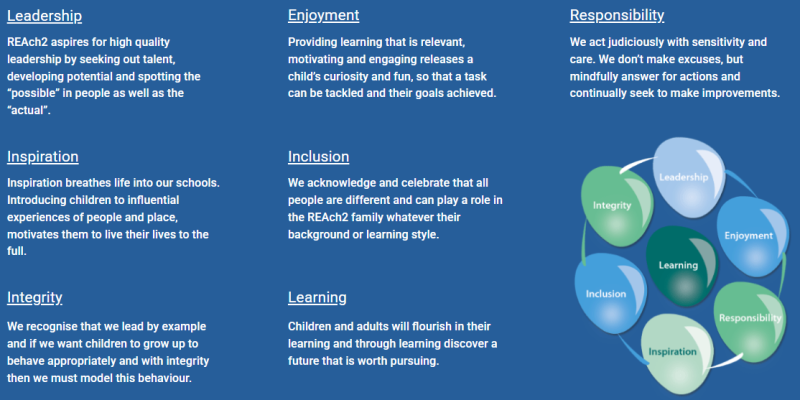Curriculum Overview
At Northfield St Nicholas Primary Academy our curriculum is designed to provide children with the knowledge and skills needed to enable them to become lifelong learners who have high aspirations for themselves and the wider community. The whole curriculum is rooted in our school ethos of ‘Look Smart, Think Smart, Be Smart’ underpinned by ‘Think Kind Thoughts, Have Kind Behaviour, Say Kind Words’ .
The National Curriculum forms part of our curriculum which is underpinned by an understanding of our own locality and community and seeks to develop aspiration for themselves and our community. We seek to develop a knowledge and understanding of fundamental British values as well as developing the skills and knowledge in PHSE and SMSC to enable our children to be well rounded and successful local and world citizens. Basic skills in reading, writing and maths underpin our curriculum since the acquisition of these skills is fundamental to children being able to meet their potential. These skills will be learnt and applied across a range of subjects through unique learning themes that are related through our literacy book themes.
We strive for the highest pupil standards both in conduct and learning, academically and creatively by having high expectations of all and through appropriate levels of challenge and support to enable all children to make clear progress from their varying starting points. We will teach for progress not coverage, based on accurate assessments of the children’s different starting points. We promote that learning is made from making mistakes and that by engaging reflectively in our mistakes we become better, more resilient successful learners who can remember and apply what we have learnt.
Our curriculum reflects our commitment to the Reach2 Touchstones of Leadership, Integrity, Enjoyment, Learning, Responsibility, Inspiration and Inclusion and these touchstones permeate our curriculum and school life. We will support our children to develop a wide range of skills to enable them to succeed through the use of our four learning behaviours of: Try new things, Concentrate, Improve and Don’t give up as well as developing skills in articulating and understanding their own learning and the next steps needed.
Curriculum Implementation
In 2023 we transformed our curriculum to embrace a vocabulary rich, knowledge based approach to help develop pupils retrieval, vocabulary and deeper learning in all curriculum areas. We have implemented this approach to inspire and motivate children to grow into future citizens who are confident to embrace the challenges and opportunities of the modern world.
The Curriculum for Unity School’s Partnership (CUSP) is used for English, science, history, computing, music, French, art, DT and geography. This is an ambitious, evidence-based curriculum with a focus on vocabulary. End points are identified and carefully planned for, building on previous knowledge. Long term plans comprehensively map out what is taught across the school in all subjects. See the attached documents for the content of our different subjects within the school’s curriculum. Subjects are taught individually but links are made across different subjects where appropriate. The curriculum is underpinned by a rich, inclusive approach that ensures our children have access to freshly delivered, focused and systematic teaching. Each unit includes an overview for children which details the topic’s big idea and prior learning, plus substantive and disciplinary knowledge. Dual coded ‘knowledge organisers’ contain core information for children’s reference and act as a means of retrieval practise, which is the deliberate retrieval of knowledge in a way that supports long-term memory formation. For each lesson, children use a knowledge note which develops the core knowledge found in knowledge organisers. Knowledge notes focus pupils’ working memory to the key question that will be asked at the end of the lesson. They reduce cognitive load and help avoid split-attention effect.
Lesson sequences are carefully considered to ensure that the content has a clear and coherent order, allowing children to connect new learning to existing knowledge. Curriculum documents provide teachers with a range of task ideas to support the development of this knowledge and understanding. Retrieval practise is embedded in the learning sequences to support long-term memory, using spaced learning and ‘interleaving’ as part of the class teacher’s lesson design. Children also study vocabulary modules which provide vital Tier 2 and 3 vocabulary connected to their topics. These include etymology and morphology, relevant idioms and colloquialisms. We aim to provide a culture of high challenge combined with low threat, putting no ceiling on any child’s learning and providing the right scaffolding for every child to achieve.
In maths, lessons are planned using high quality resources from White Rose and PIXL. This ensures we have a well-constructed, progressive curriculum and maintains focus on children learning in small steps and exploring topics deeply. Lessons consist of opportunities for fluency, variation of representation and mathematical thinking. All children use manipulatives and pictorial representations to expose and make connections within concepts. At Northfields, we emphasise the importance of pupils’ oral contributions and ensure that all children can contribute. Mathematical vocabulary is displayed and modelled and key questions and sentence starters support and challenge learners.
In other curriculum areas, a coherent subject-specific, knowledge based curriculum has been developed with carefully planned sequences of learning that reflect the National Curriculum. This includes using Purple Mash for computing, Complete PE and Jigsaw RE.
